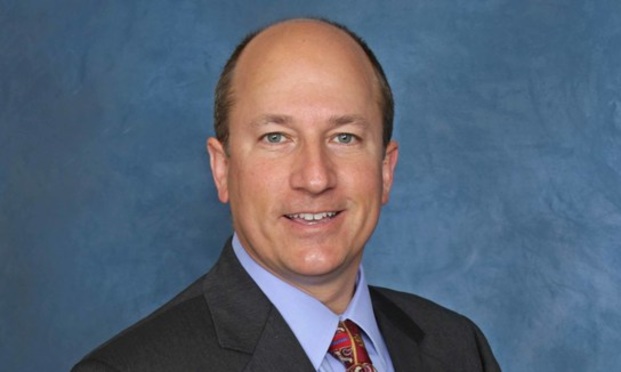Appellate Lawyer of the Week: Lubbock Lawyer Gains Multiple Free Speech Wins for Texas Tech Professor
Last summer, Fernando Bustos convinced the U.S. Fifth Circuit Court of Appeals that his professor client has a viable federal free speech case against…
March 15, 2018 at 11:33 AM
4 minute read

Last summer, Fernando Bustos convinced the U.S. Fifth Circuit Court of Appeals that his professor client has a viable federal free speech case against Texas Tech University officials after they allegedly retaliated against him for speaking out against the tenure system.
But the Lubbock lawyer wasn't finished protecting James Wetherbe's right to sue over two issues that be believes should go hand in hand on American college professors — the First Amendment and academic freedom.
So Bustos just won a similar ruling from Amarillo's Seventh Court of Appeals, allowing Wetherbe to also pursue a state claim against Texas Tech University after it allegedly demoted him because of his anti-tenure views.
“What's important about this case is free speech,” Busto said of his state court victory in Wetherbe v. Goebel. “And part of what Dr. Wetherbe is trying to prove is that the First Amendment should be all you need to protect your academic freedom.''
Wetherbe, a Texas Tech business professor, gave up a tenured professorship at another school 20 years ago and has been a vocal critic of the system ever since. He refused tenure at Texas Tech after he was hired and alleges that he was denied a position as dean of the university's business school because of his critical views of tenure.
“Dr. Wetherbe for a long time has felt that tenure was not been a good thing for education. It protects people who are lazy or unproductive and it fosters complacency instead of innovations,” said Bustos, who also serves as Wetherbe's trial lawyer.
Bustos took a double-barreled approach to Wetherbe's case by filing free speech claims under the Texas Constitution in a Lubbock state district court and a parallel federal free speech case in a Lubbock U.S. District Court, insuring his client would be heard by a jury in at least one of the courts.
But both of those cases were later dismissed after the University convinced the trial court judges that tenure is not a matter of public concern and that the Wetherbe's speech on the subject was therefore not protected by the First Amendment — rulings that Wetherbe appealed.
In a June per curiam decision, the Fifth Circuit reversed the federal trial court ruling after concluding that the context and form of Wetherbe's speech indicated that his speech was a matter of public concern, noting that he'd publishing an article in the Harvard Business Review advocating his view that it would better and less expensive for public universities if professors were contract employees.
And Bustos later convinced the Seventh Court that the state trial court was wrong to dismiss Wetherbe's case on a plea to the jurisdiction by presenting the appellate with a complete list of articles the professor had written about subject including an opinion piece in BizEd that descried his own experiences with tenure that lead to his resignation from the University of Minnesota and a Financial Times editorial entitled “Tenure System Stifles Business Schools.”
Bustos also presented the court with a list of corresponding events that Wetherbe alleged constituted adverse retaliatory conduct by Texas Tech officials after the each of the articles were published including his being removed from leadership positions at the university and being demoted to a “professor of practice.”
“For our present purpose of determining the trial court's jurisdiction over the claims Wetherbe has plead, we find the pleadings allege statements with content speaking to a matter of public concern,” wrote Justice James T. Campbell, reversing the dismissal of his state law claim and remanding back to the trial court for further proceedings.
Bustos believes the combination of both appellate rulings in his case will finally allow Wetherbe to present his case to a state court jury without further appellate delay.
“We're looking to having our trial. The court of appeals went into even more detail than the Fifth Circuit. And it telegraphed to the trial court that if you try to come back on a motion to summary judgment it will be denied, too,'' Bustos said. “We have already gotten through a lot of discovery. And the court has said on these set of facts, he ought to have a trial and have a jury hear the facts.''
Abigail Doty, a spokeswoman for the Texas Attorney General's Office, which represents the Texas Tech defendants in the case, declined to comment.
This content has been archived. It is available through our partners, LexisNexis® and Bloomberg Law.
To view this content, please continue to their sites.
Not a Lexis Subscriber?
Subscribe Now
Not a Bloomberg Law Subscriber?
Subscribe Now
NOT FOR REPRINT
© 2025 ALM Global, LLC, All Rights Reserved. Request academic re-use from www.copyright.com. All other uses, submit a request to [email protected]. For more information visit Asset & Logo Licensing.
You Might Like
View All
Ex-Appellate Court Judges Launch Boutique Focused on Plaintiffs Appeals
2 minute read
Supreme Court Considers Reviving Lawsuit Over Fatal Traffic Stop Shooting

Overtime Rewind: Texas Court Ruling Unravels FLSA Salary Level Increases
4 minute read
Divided 5th Circuit Shoots Down Nasdaq Diversity Rules
Trending Stories
- 1Uber Files RICO Suit Against Plaintiff-Side Firms Alleging Fraudulent Injury Claims
- 2The Law Firm Disrupted: Scrutinizing the Elephant More Than the Mouse
- 3Inherent Diminished Value Damages Unavailable to 3rd-Party Claimants, Court Says
- 4Pa. Defense Firm Sued by Client Over Ex-Eagles Player's $43.5M Med Mal Win
- 5Losses Mount at Morris Manning, but Departing Ex-Chair Stays Bullish About His Old Firm's Future
Who Got The Work
J. Brugh Lower of Gibbons has entered an appearance for industrial equipment supplier Devco Corporation in a pending trademark infringement lawsuit. The suit, accusing the defendant of selling knock-off Graco products, was filed Dec. 18 in New Jersey District Court by Rivkin Radler on behalf of Graco Inc. and Graco Minnesota. The case, assigned to U.S. District Judge Zahid N. Quraishi, is 3:24-cv-11294, Graco Inc. et al v. Devco Corporation.
Who Got The Work
Rebecca Maller-Stein and Kent A. Yalowitz of Arnold & Porter Kaye Scholer have entered their appearances for Hanaco Venture Capital and its executives, Lior Prosor and David Frankel, in a pending securities lawsuit. The action, filed on Dec. 24 in New York Southern District Court by Zell, Aron & Co. on behalf of Goldeneye Advisors, accuses the defendants of negligently and fraudulently managing the plaintiff's $1 million investment. The case, assigned to U.S. District Judge Vernon S. Broderick, is 1:24-cv-09918, Goldeneye Advisors, LLC v. Hanaco Venture Capital, Ltd. et al.
Who Got The Work
Attorneys from A&O Shearman has stepped in as defense counsel for Toronto-Dominion Bank and other defendants in a pending securities class action. The suit, filed Dec. 11 in New York Southern District Court by Bleichmar Fonti & Auld, accuses the defendants of concealing the bank's 'pervasive' deficiencies in regards to its compliance with the Bank Secrecy Act and the quality of its anti-money laundering controls. The case, assigned to U.S. District Judge Arun Subramanian, is 1:24-cv-09445, Gonzalez v. The Toronto-Dominion Bank et al.
Who Got The Work
Crown Castle International, a Pennsylvania company providing shared communications infrastructure, has turned to Luke D. Wolf of Gordon Rees Scully Mansukhani to fend off a pending breach-of-contract lawsuit. The court action, filed Nov. 25 in Michigan Eastern District Court by Hooper Hathaway PC on behalf of The Town Residences LLC, accuses Crown Castle of failing to transfer approximately $30,000 in utility payments from T-Mobile in breach of a roof-top lease and assignment agreement. The case, assigned to U.S. District Judge Susan K. Declercq, is 2:24-cv-13131, The Town Residences LLC v. T-Mobile US, Inc. et al.
Who Got The Work
Wilfred P. Coronato and Daniel M. Schwartz of McCarter & English have stepped in as defense counsel to Electrolux Home Products Inc. in a pending product liability lawsuit. The court action, filed Nov. 26 in New York Eastern District Court by Poulos Lopiccolo PC and Nagel Rice LLP on behalf of David Stern, alleges that the defendant's refrigerators’ drawers and shelving repeatedly break and fall apart within months after purchase. The case, assigned to U.S. District Judge Joan M. Azrack, is 2:24-cv-08204, Stern v. Electrolux Home Products, Inc.
Featured Firms
Law Offices of Gary Martin Hays & Associates, P.C.
(470) 294-1674
Law Offices of Mark E. Salomone
(857) 444-6468
Smith & Hassler
(713) 739-1250






